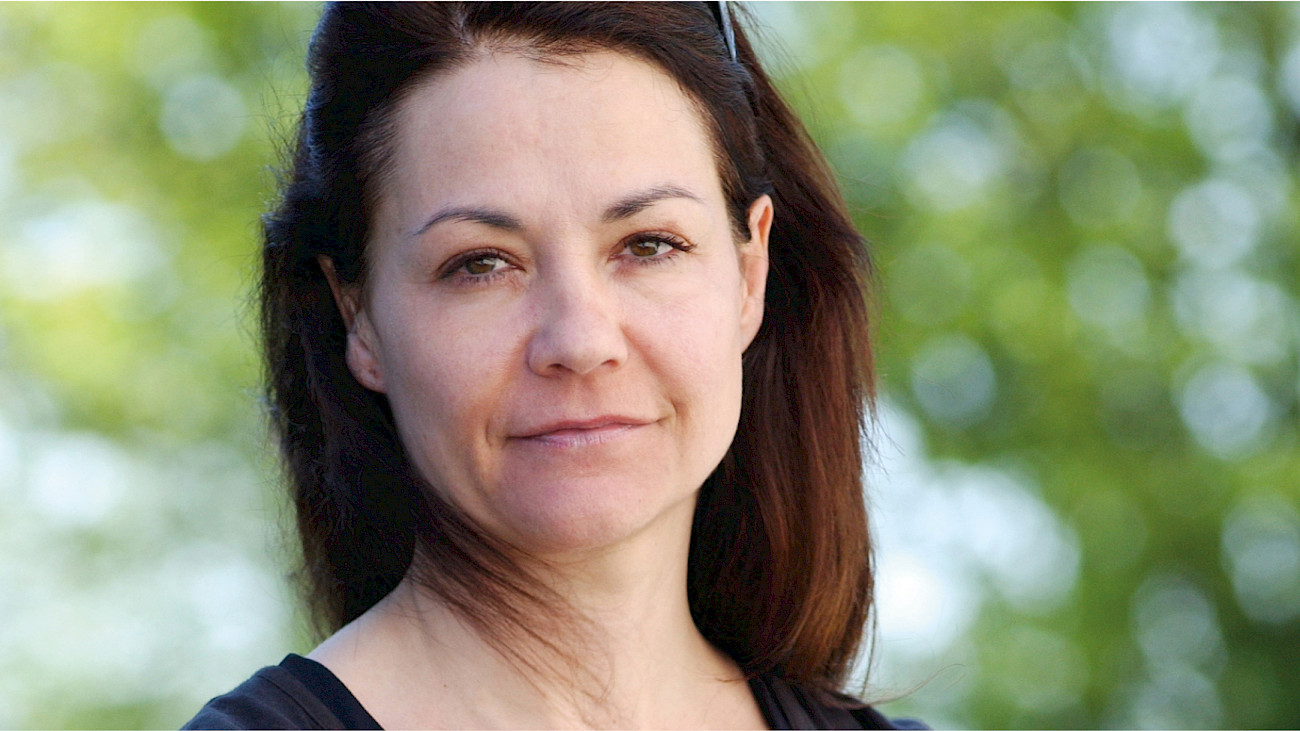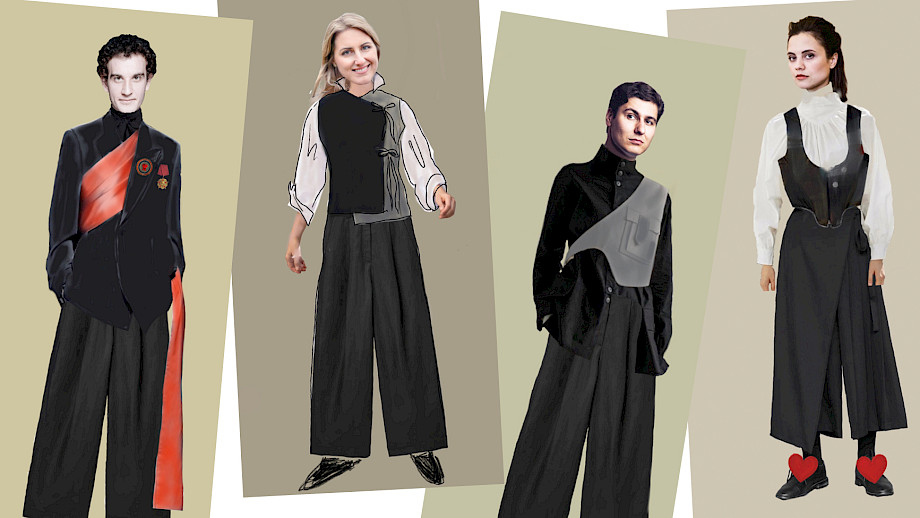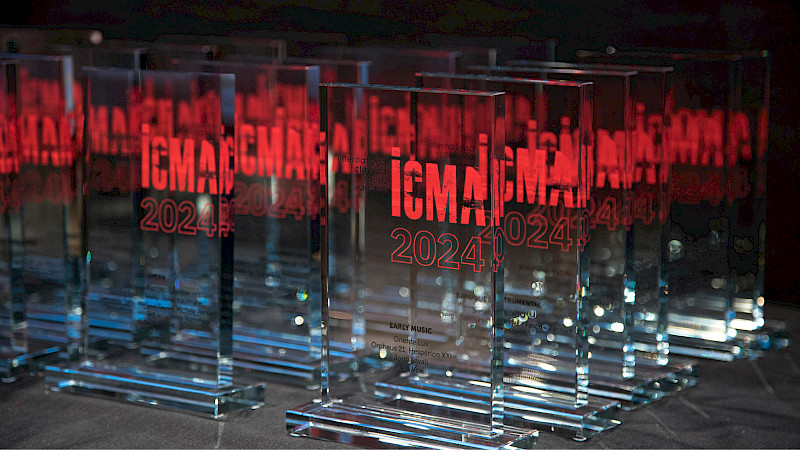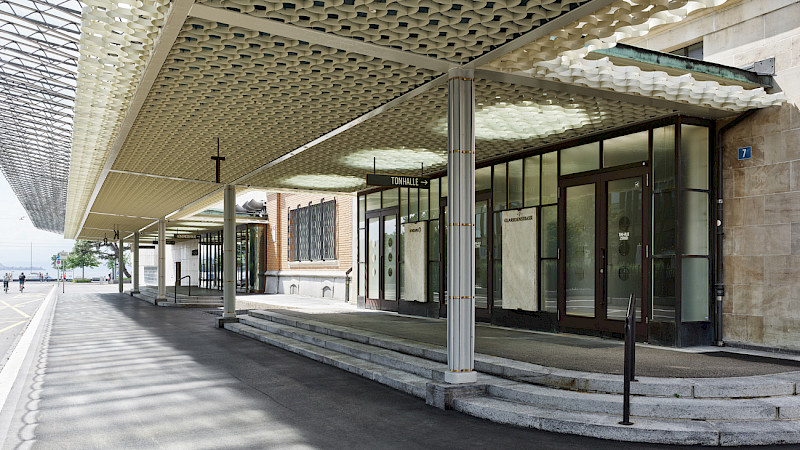
«Fidelio» or «Florestan»?
For the first time since Paavo Järvi became Music Director, an opera is on the programme: «Fidelio». It will be a semi-staged performance. Director Eva Buchmann talks about her view of Beethoven and the big impact of small things.
«Fidelio» is the only opera by Beethoven and today it is impossible to imagine the repertoire without it. How did you approach this work?
For me it was always a somewhat difficult work. I then read up on it intensively and thought about it: Why did Beethoven write this opera and why only this one? Somehow I thought, it is very significant that someone works so long on a work for the stage. He wanted so much to write an opera – and although there were so many libretti available in his time, it took him a long time to find the right one. The libretto by Joseph Sonnleithner then inspired him. But the result was not a success.
But Beethoven did not let it go.
Other composers might have tried it with a different libretto. But no, Beethoven simply didn't give up on it, but revised it several times. Until 1814. I realised: it must have something to do with him. He also approached other great themes, like Faust and Macbeth – but it stayed with this Fidelio. I think if you want to compose an opera, you have to be able to get into a character, even one that has nothing to do with you. But since Beethoven was quite egocentric and certainly not very empathetic socially, he may have chosen a piece that was very close to him personally.
Where do Beethoven and his «Fidelio» come particularly close?
There are several big themes. On the one hand, there is Beethoven's humanistic idea, the utopia that all people are equal and can live in freedom. There is also the idea of love as marital fidelity, an ideal that he himself was never able to achieve. The woman who frees him from this loneliness. Isolation in and of itself is also a theme, not only social isolation, but also because he has then become deaf. And when you imagine it all like that, I think: yes, it's actually about him.
The music will be embedded in new texts. What kind of lyrics are they?
A collection of quotations from his letters and notes, but also from his «Heiligenstadt Testament». By using his own voice, it is possible to convey the experience that «Fidelio» could only be composed by Beethoven and that he had to compose exactly this one opera.
Since Beethoven was quite egocentric and certainly not very sensitive socially, he may have chosen a piece that was very close to him personally.
Why did you choose these texts?
First of all, it's about his art, the music, that was probably the most important thing for him. In addition, there are text fragments that had to do with his complicated relationships, with his many brief affairs - right up to the famous letter to the «Immortal Beloved». There are also descriptions of the political situation, his ideas, but also his worries. We have structured the texts in such a way that they run with the play. Because at the beginning, the work has more of a comedy than a great drama. Accordingly, the lyrics are rather light and funny at the beginning, but then they become increasingly heavy and convey the tragedy of this artist's life. And when text and music finally overlap in a melodrama, the music also speaks. Then the parallel between Beethoven's opera and his biography becomes very clear.
Are there facets of Beethoven that you have rediscovered?
I was surprised by his way of dealing with people. He didn't discriminate when it came to people of higher status who supported him. There is no perceptible respect at all, on the contrary. We also have a quote on this: «Prince, what you are, you are by chance and birth; what I am, I am by myself; there have been and will be thousands of princes; there is only one Beethoven!» I find that incredible for that time.
Our audience may remember your production of Haydn's «Lo Speziale», where you built the entire plot around a tiny Fiat 500. Where will your «Fidelio» be set? In the original it is a prison ..
Our «Fidelio» will of course also take place in a prison. But with semi-staged performances it's like this: you don't just reduce the staging, it's actually a concert, and you add elements, little things that stimulate the imagination, so that people can then imagine a whole world after all.
The basic idea is that they are simple costumes, and all equal at the base. This brings us to Beethoven's utopian idea: all people are equal.
What is the importance of light for you as a director?
Light is incredibly important. With light you can do everything - or ruin everything (laughs). Tension, emotions. Often the audience doesn't even notice what actually happens with light, but you can manipulate and control everything. And in the case of «Fidelio» it's very important because it's about two worlds: the scenery of «Fidelio» and the voice of Beethoven. So I have to separate these two worlds, otherwise you don't understand it. And that happens with light.
There will also be costumes by Selina Tholl. What is the idea behind these costumes?
The basic idea is actually that they are simple costumes, all the same at the base. This brings us to Beethoven's utopian idea: all people are equal. With some details it is then indicated who is which person. For example, who has a function in the prison or who is the governor. And the costumes are also the same for men and women. Everyone wears trousers.
Is there a character that you have grown particularly fond of in your confrontation or that you have rediscovered?
Yes, this Florestan. Because in our interpretation he is actually Beethoven. These parallels to him, that was the new discovery for me. The opera used to be called «Leonore». And it is our «Fidelio». I would call the opera «Florestan» (laughs).
Do you remember when you first came into contact with «Fidelio»?
I remember as a child we had the «Magic Flute» at home, and we turned it down on the record player. I thought it was fantastic. And then we also had «Fidelio», but I was somehow disappointed by that work. I found it so incomprehensible and also more boring, such a different world from this «Magic Flute», that was opera for me.
Was there then still an approach?
Yes, through performances that I attended. And then I read about it in the feuilleton. But this intensive examination now is a great opportunity to really get to know the work and Beethoven. But you only really get close to composers through their music.
So you also listen to different recordings in preparation?
First, of course, I have to study the text. I have to know what it's actually about. And then the music is incredibly important for me. I get my inspiration from it. Always. I listen to very different recordings - although I also have my preferences.
For example?
I like the recordings with Claudio Abbado or with Nikolaus Harnoncourt. But different recordings are important for the tempi, for example. The tempi are crucial because they also have a tremendous influence on a scene. If something is too slow, then there is also a different atmosphere - or even a different content. That is a difficulty: I am the director, but I am not the conductor. And in the end, it's the conductor who decides. It's just very fascinating.
How would you describe the exchange with Paavo Järvi?
I haven't worked with him yet, and I'm really looking forward to it. He is an incredibly great conductor and musician. I'm curious to see how he approaches these things and what he discusses with the musicians and singers. In semi-staged performances we don't have much time together.
A few days ...
Yes, with big productions you have special rehearsals and maybe six weeks. We have to determine a bit in advance what's going to happen. But nevertheless, I also want to give everyone on stage the freedom to express how they and Paavo Järvi would like to realise it. I don't want to stand in the way. So together we will put together picture after picture to form a kind of tableau. This is also a nice addition for a new audience, which is more visually attuned today. But in the end, it is the music that is in the foreground.
Beethoven's «Fidelio»
The opera centres on Florestan, a political prisoner in Don Pizarro's jail, and his wife Leonore, who is looking for him. To do this, she disguises herself as a man, calls herself Fidelio and smuggles herself into the prison as an assistant to the jailer Rocco. Rocco's daughter Marzelline falls in love with «Fidelio». In the dramatic final section, Don Pizarro wants to kill Florestan, Leonore intervenes - at which point the minister is announced, who ends all injustice and frees the prisoners.
Translated with DeepL






